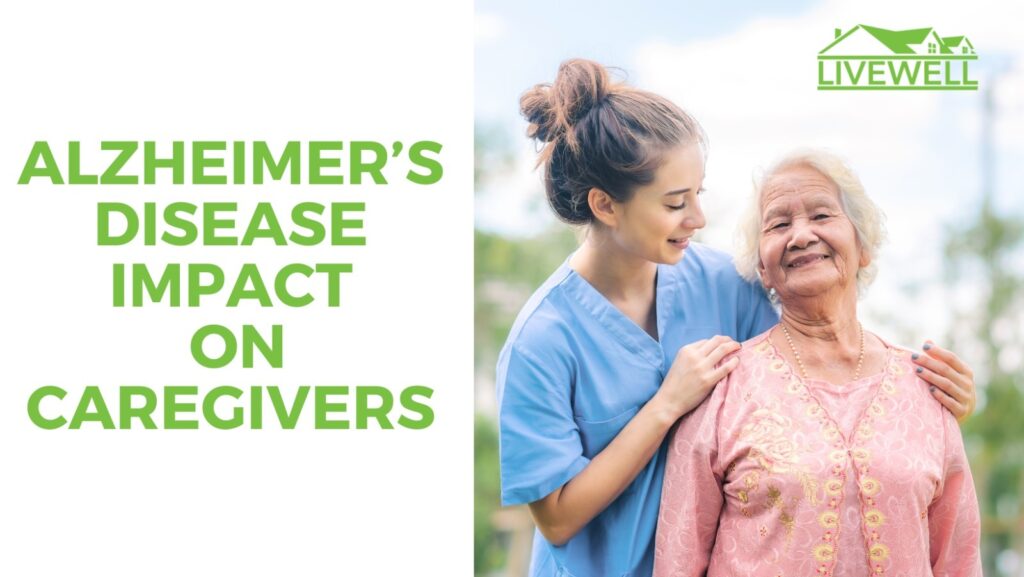Impacts of Alzheimer’s Disease on Caregivers

Alzheimer’s is a disease that affects memory, controlling a person’s thought process and language, leading to forgetfulness, poor judgment, and being hesitant to try new things, among other common types of dementia.
In Alzhemeir’s Association‘s medical definition is the most common cause of dementia, a general term for memory loss and other cognitive abilities severe enough to interfere with daily life.
Alzheimer’s – Dementia Fact and Figures found out that more than 6 Million Americans are living with Alzheimer’s. The lifetime risk for Alzheimer’s at age 45 is 1 in 5 for women and 1 in 10 for men.
Caregivers are great healthcare workers that show care and support to loved ones at their homes. An article byGherry Community states the exceptional services caregivers give, including administering medications and exercising, among other activities that support the patient’s physical, mental, social, and emotional well-being.
While Alzheimer’s disease primarily brings about significant challenges for caregivers, positive impacts can also be associated with the caregiving experience.
These positive aspects may not negate the difficulties but can provide caregivers with fulfillment, personal growth, and meaningful connections.
Here are some potential positive impacts of Alzheimer’s disease on caregivers:
Growth in resilience: Being a caregiver involves fully caring for patients with Alzheimer’s. This demands patience, sacrifice, mental stability, and strength. The experience challenges them to adapt to new situations, learn problem-solving skills, and find strength within themselves.
Enhances soft skills: Dealing with patients affected by the disease provides high communication skills and emotional intelligence. Caregivers learn to communicate cautiously and with emotional intelligence to their patients, the affected families, and even the people around them.
Living life with more gratitude: While taking care of those affected by the disease, they learn to appreciate the life they are living. This means not taking anything for granted. It is an eye-opener to a happier, more valued lifestyle.
Develop a sense of peace and tranquility: Due to their passion for service, caregivers give services that enhance a serene home full of calmness and relaxation. This helps families have easy work dealing with their ill loved ones. In addition, the skill is applied in other areas of the caregiver’s life.
Learning wisdom: “The elderly may not remember what you told them, but never will they forget how you made them feel; in return, they share knowledge.” Quotes on Taking Care of Elderly Parents.
Caregivers learn a lot from patients at home. They are privileged to interact with the more knowledgeable, experienced, and great minds of the older generations to help them apply in their daily lives.
Flexibility and adaptability: The nature of the jobs enables caregivers to adapt to different situations. Most individuals change their personality, view of life, and character afterward, which primarily positively impacts their day-to-day living. This makes them learn to prioritize what is essential.
While these positive impacts can exist, it is essential to acknowledge that each caregiver’s experience is unique, and not all caregivers may experience these positives.
The overall effects of Alzheimer’s disease on caregivers is multifaceted, encompassing challenges and potential sources of personal growth and fulfillment.
As a caregiver, share your insights and tell us your relationship to the patient with Alzheimer’s.
